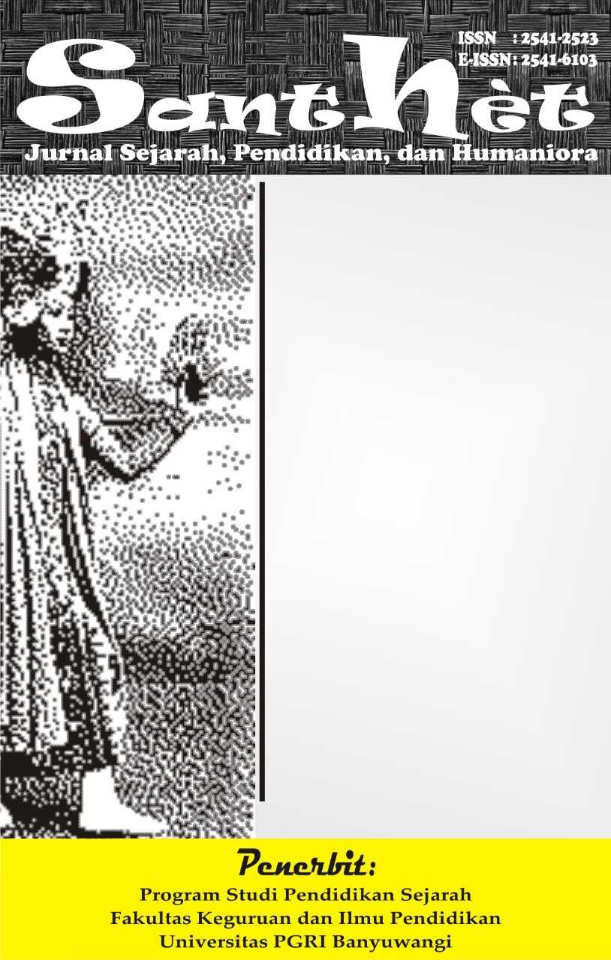The Influence of Organic Sales Strategy on TikTok Platform Toward Consumer Loyalty in Fashion Products (Case Study of PT Cikal Industries Indonesia)
Pengaruh Strategi Penjualan Organik pada Platform TikTok terhadap Loyalitas Konsumen Produk Fashion (Studi Kasus PT Cikal Industries Indonesia)
DOI:
https://doi.org/10.36526/santhet.v9i5.6417Keywords:
Social Media Marketing, Content Marketing, Influencer, Brand Trust, Consumer LoyalityAbstract
The rapid growth of digital technology has transformed consumer behavior, especially in online fashion shopping. This study examines the effect of organic sales strategies on consumer loyalty toward PT Cikal Industries Indonesia on the TikTok platform. Organic strategies utilize TikTok’s algorithm to reach audiences naturally without paid advertising. Using a quantitative survey of 100 TikTok consumers, the study analyzes social media marketing, content marketing, influencers, brand trust, and customer satisfaction as independent variables, with consumer loyalty as the dependent variable. Data were processed using multiple linear regression via SPSS. Results show that social media marketing, content marketing, and brand trust significantly influence consumer loyalty, while influencers and customer satisfaction have positive but less significant individual effects. Collectively, all variables significantly affect consumer loyalty. The findings highlight that organic sales strategies through TikTok effectively strengthen brand-consumer relationships and foster long-term loyalty in the fashion industry.
References
Ade, A. D., Rizan, M., & Febrilia, I. (2024). PENGARUH AKTIVITAS PEMASARAN MEDIA SOSIAL MEDIA SOSIAL TERHADAP CITRA MEREK, LOYALITAS MEREK, DAN NIAT BELI ULANG PADA SOCIAL COMMERCE TIKTOK SHOP. Jurnal Masharif Al-Syariah: Jurnal Ekonomi Dan Perbankan Syariah, 9(4), 2399–2416. https://doi.org/10.30651/jms.v9i4.23496
Andini, R. I. (2024). PENGARUH CONTENT MARKETING, INFLUENCER MARKETING, ONLINE CUSTOMER REVIEW TERHADAP KEPUASAN DAN DAMPAKNYA PADA LOYALITAS KONSUMEN SHOPEE (STUDI PADA MAHASISWA KOTA PALEMBANG). JURNAL MANAJEMEN, 2(2), 705–725.
Brown, D., & Hayes, N. (2016). Influencer Marketing: Who Really Influences Your Customer. Oxford: Routledge.
Chaudhuri, A., & M. B. Holbrook. (2002). Product-Class Effects on Brand Commitment and Brand Outcomes: The Role of Brand Trust and Brand Affect. Journal of Brand Management, 10(1), 33–56.
Kotler, P., & Keller, K. L. (2012). Manajemen Pemasaran. Jakarta: Erlangga.
Lee, R., & Kim, S. (2021). IoT applications in smart waste management: A review. Journal of Environmental Engineering, 2(45), 134–150. https://doi.org/https://doi.org/10.1234/je.2021.00456
Masitoh, M. R., & Wibowo, H. A. (2019). Pengaruh Kualitas Pelayanan, Kepuasan Pelanggan, dan Kepercayaan Merek Terhadap Loyalitas Pelanggan Pada Pengguna Aplikasi Mobile Shopee. Jurnal Sains Manajemen, 5(1), 101–120. https://ekonomi.kompas.com/read/2018/11/08/172007426/ini-3-e-commerce-yang-paling-
Oliver, R. L. (1999). Whence Consumer Loyalty. Journal of Marketing, 63, 33–44. The article is published at https://journal.goufpublisher.com/index.php/ecobis/
Pulizzi, J. (2019). Get Content Get Customers: Turn Prospects into Buyers with Content Marketing. New York: McGraw-Hill.
Putra, M. D. A., & Sulaeman, S. (2024). ANALISIS PENGARUH DIGITAL MARKETING DAN KUALITAS PELAYANAN DALAM MENCIPTAKAN KEPUASAN KONSUMEN TERHADAP LOYALITAS KONSUMEN DALAM BERBELANJA DI MARKET PLACE. SOSAINS: Jurnal Sosial Dan Sains, 4(1), 85–95. http://sosains.greenvest.co.id
Sutrisno. (2024). Pengaruh Social Media Marketing dan Customer Brand Engagement dalam Menjaga Loyalitas Pelanggan. Ilmu Ekonomi Manajemen Dan Akuntansi, 5(1), 223–233. https://doi.org/10.37012/ileka.v5i1.2180
Tuten, T. L., & Solomon, M. R. (2018). Social Media Marketing (third edition). London: SAGE Publications Ltd.





























